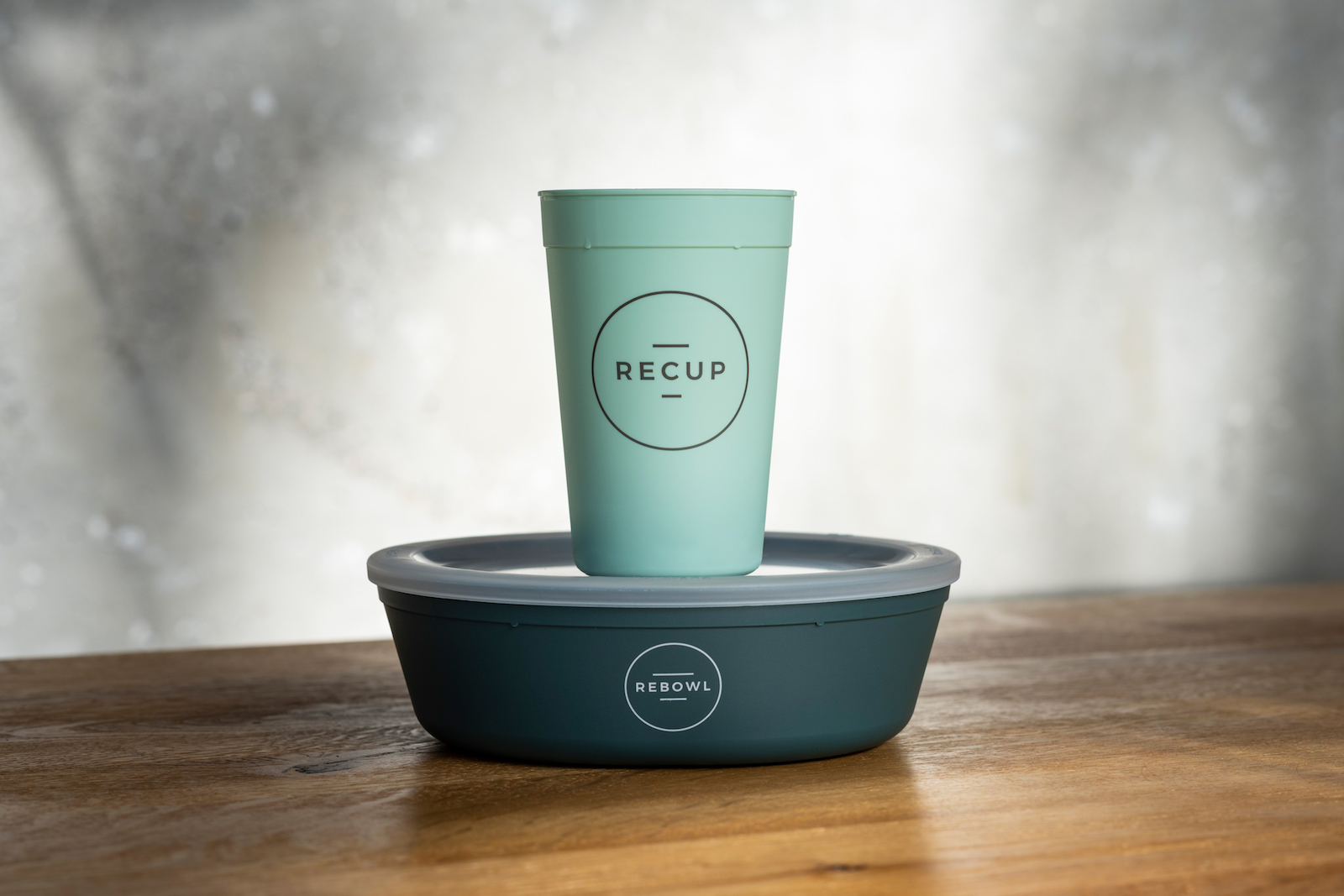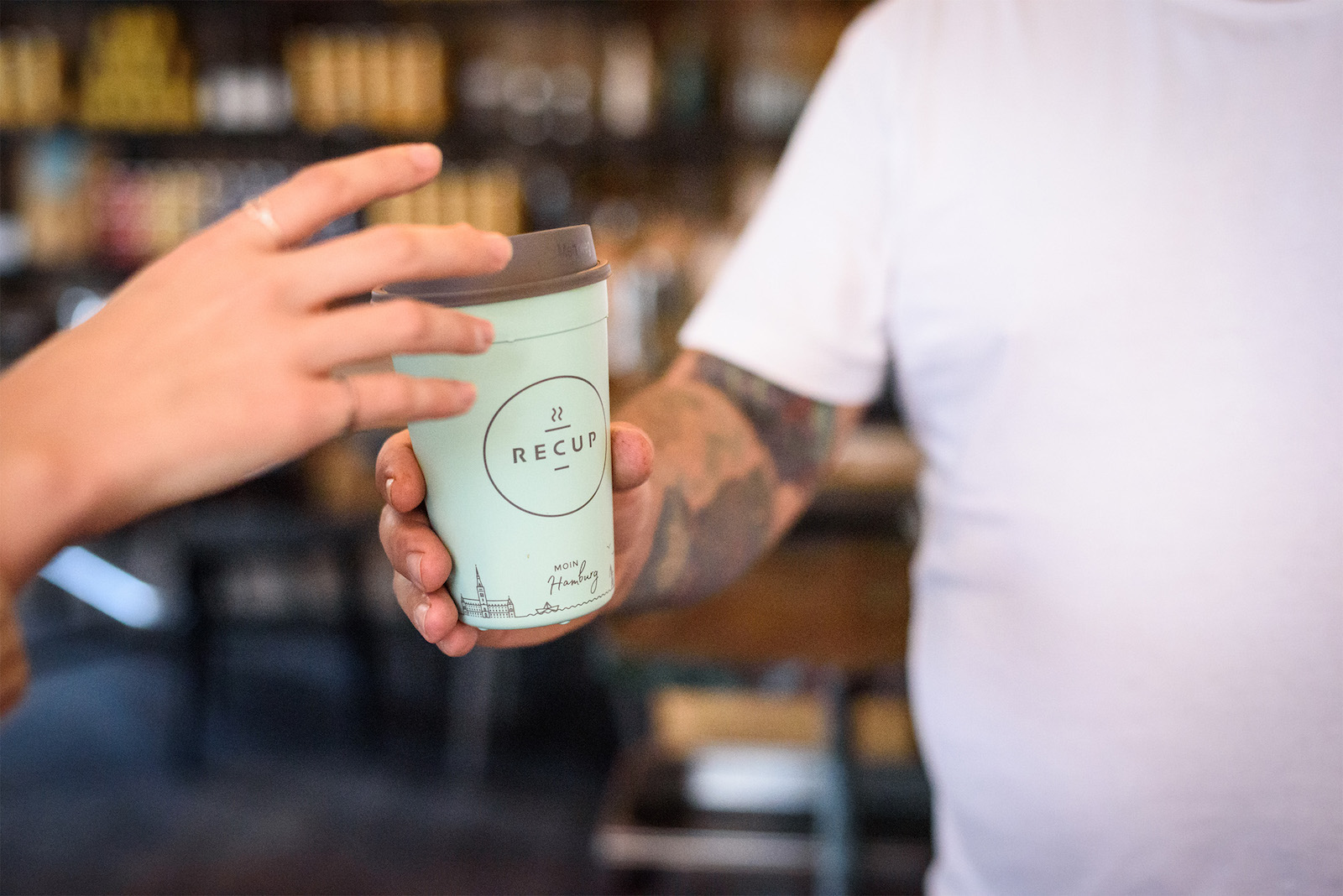Nearly half of the United States population, 150 million other American adults, are coffee drinkers.
Now think about the cups. Unless you’re drinking your brew at home, you’re likely picking up your java in a paper cup to go.
And that’s the problem across the world: nearly 16 billion paper to-go cups are used every year, which leads to 6.5 million trees being cut down and 4 billion gallons of water being wasted. The inside of most paper to-go cups is also coated in a thin layer of plastic, making them unrecyclable.
With these issues in mind, many places, ranging from small towns in England to New Zealand’s most populated city, have introduced a new solution in recent years: deposit-based reusable cup systems. These systems allow consumers to pay a small deposit, use a reusable to-go cup, made of 100% recyclable polypropylene, and then return it for their cash back after they’ve had their morning brew. One of the largest such schemes in Europe is Germany’s RECUP, which is offered through more than 8,000 partner locations across the country.
Florian Pachaly and Fabian Eckert, the organization’s co-founders, started testing their idea for a deposit-based to-go coffee cup scheme in Rosenheim, near Munich, in 2016, with 12 partner locations. A year later, the pair officially launched RECUP, rolling out to 60 additional partners in more cities. RECUP also began offering reusable bowls, called REBOWLs, for to-go meals last year.
For consumers, a RECUP costs 1€ ($1.18), while a REBOWL costs 5€ ($5.91). Both are returnable for the deposit back. Non-returnable multi-use to-go-cup lids are sold for 30 cents. For cafés and restaurants, RECUP charges a monthly service fee, ranging from 25€ ($29.53) to 45€ ($53.15), plus deposits on each cup or bowl the establishment orders. The breakeven point for businesses is an estimated 12 to-go drinks per day.

The feedback from both partners and consumers has been positive.
Bilal Hosni lives in Mainz, a small city near Frankfurt, where there are more than two dozen RECUP partner locations. He started using RECUPs because he thinks they are a “simple and brilliant” solution to to-go coffee cup waste. “It takes a little bit of effort,” he says. “But the more I know [about] the huge impact solid waste has on the environment, the more I appreciate it.”
But while the program is popular in Germany and elsewhere, it is difficult to gauge just how effective it is. Like with any reusable cup, the impact of its use depends on how many times it will be used over its lifetime, how it will be washed after use, and how it will be disposed of when it wears out. Each of those things, in turn, depends on individual consumer behavior, which is difficult to control. “I think models like RECUP have a great opportunity to control and ensure the environmental impact is as low as possible,” says Jonas Bengtsson, CEO and co-founder at Edge Environment, a sustainability advisory company. “But as often is the case, individual consumer behavior and choices are very important.”
The first hurdle is convincing consumers to use a reusable cup. Researchers in Australia, where a whopping 75 percent of the population drinks coffee every day, are conducting the most comprehensive and up-to-date research on effective ways to reduce to-go coffee cup waste and its knock-on environmental effects. One of those researchers, Sukhbir Sandhu, professor of sustainability and ethics at the University of South Australia, says that programs like RECUP are attractive to customers because of their low cost, convenience, and the “virtue-signaling” they allow consumers to engage in.
Sandhu also says that deposit-based systems work better than those offering small financial incentives to customers who bring their own reusable cups or imposing fees on those who don’t. Those programs are less convenient because they require consumers to carry bulky, messy, could-drip-in-your-bag reusable cups around with them. “The majority of consumers want to do the right thing and make environmentally-friendly choices but are often unwilling to sacrifice convenience,” she explains. “Deposit-based systems enable consumers to do the right thing without having to sacrifice convenience.”
Bengtsson notes that for any new solution to be adopted and used correctly, it should be designed with the consumer experience in mind. “The customer must know how to and actually use the cup or system appropriately. [It should be] intuitive, fun, and rewarding,” he says. Lisa Wernick, a member of RECUP’s PR and communications team, admits that at least part of the reason RECUP has been so successful in Germany is that Germans are already familiar with deposit-based systems, which are common in the country for things like bottled beverages and yogurt containers.
Research published last year by Sandhu and colleagues also shows that strong environmental messaging and the pressure of social norms play significant roles in getting consumers to switch to reusable to-go cups. Many interviewed for the study admitted they were swayed by popular Australian docuseries The War on Waste or by the behavior of their family, friends, or colleagues.
Systems like RECUP deliver on some of the tough questions, though, like water consumption and plastic waste. According to research from Edge Environment, if consumers handwash their reusable cups in hot running water every time they use them, they’re likely to consume more energy and emit more carbon than if they had just used a disposable cup. “It seems models like RECUP can significantly influence [this problem],” says Bengtsson. “They can effectively make sure the washing is done efficiently in bulk.”

When a RECUP starts to wear out after hundreds of washes — they’re built to replace 1,000 disposable cups — or if one breaks, RECUP collects it and transports it to its local production partner for recycling. The organization is also working with Crafting Future and the Institute for Bioplastics and Biocomposites in Hannover to develop a new material for their products that will be less reliant on fossil fuels.
Despite the uncertainties of consumer behavior, experts agree that widespread deposit-based reusable to-go cup systems are a powerful tool for preventing disposable coffee cup use and its negative environmental effects. Based on research from the German Environment Agency, RECUP estimates that its program reduces carbon emissions by 11,000 tons, conserves 1.5 billion liters of water, and saves 43,000 trees every year. Those are results that could be multiplied as more cities and businesses introduce similar programs, including coffee-giant Starbucks, which has promised to offer a deposit-based reusable to-go cup system across stores in 43 countries by 2025.



